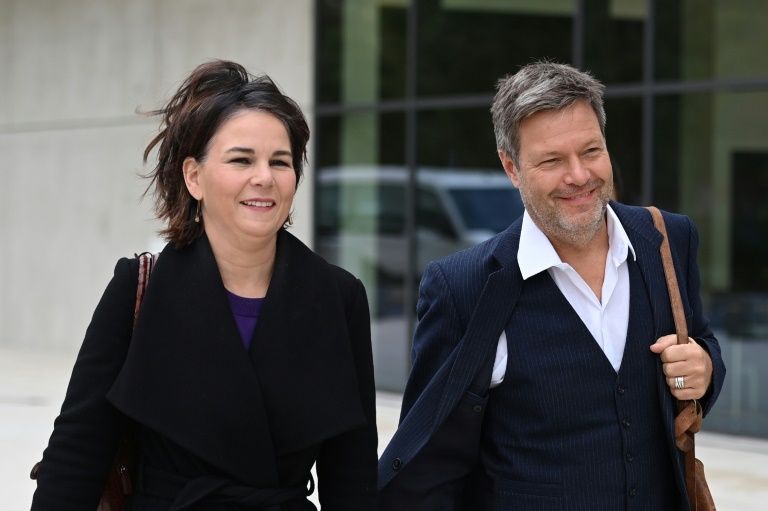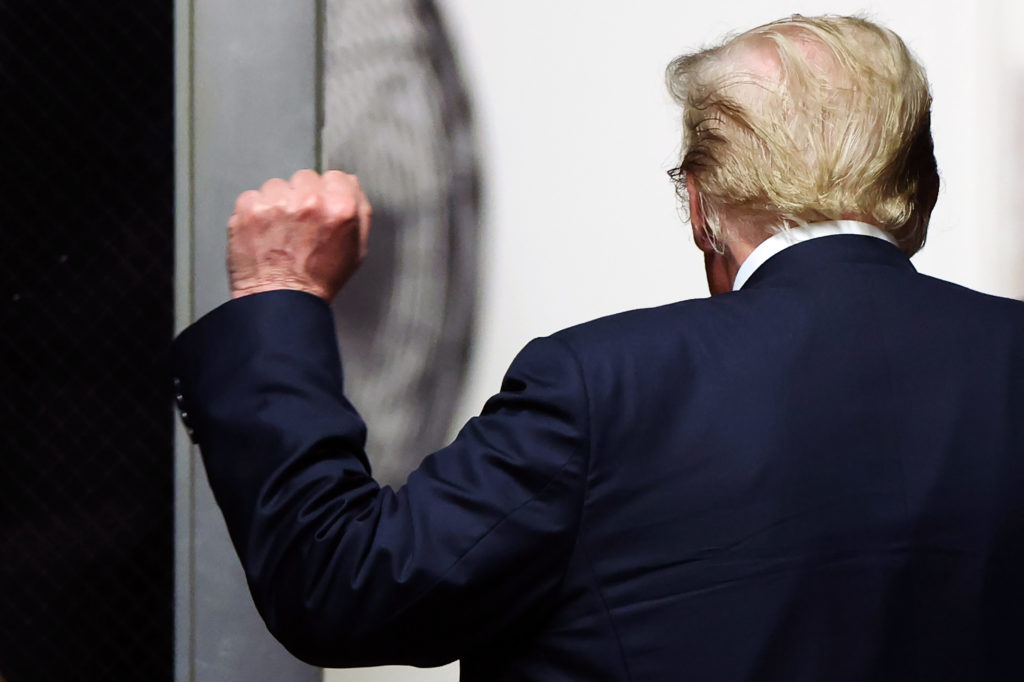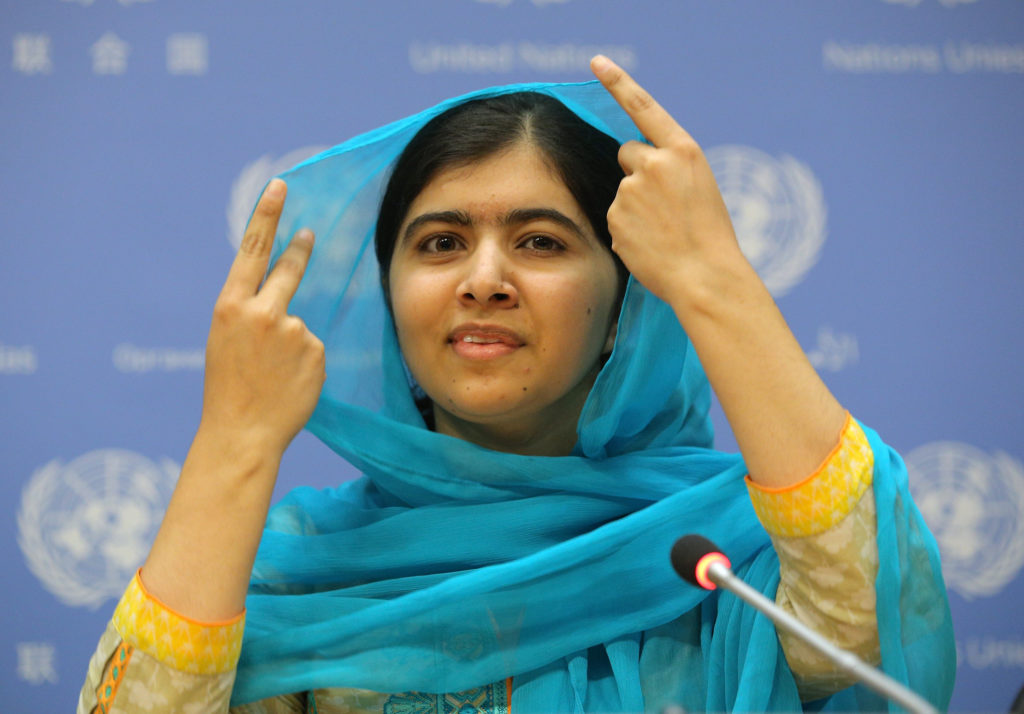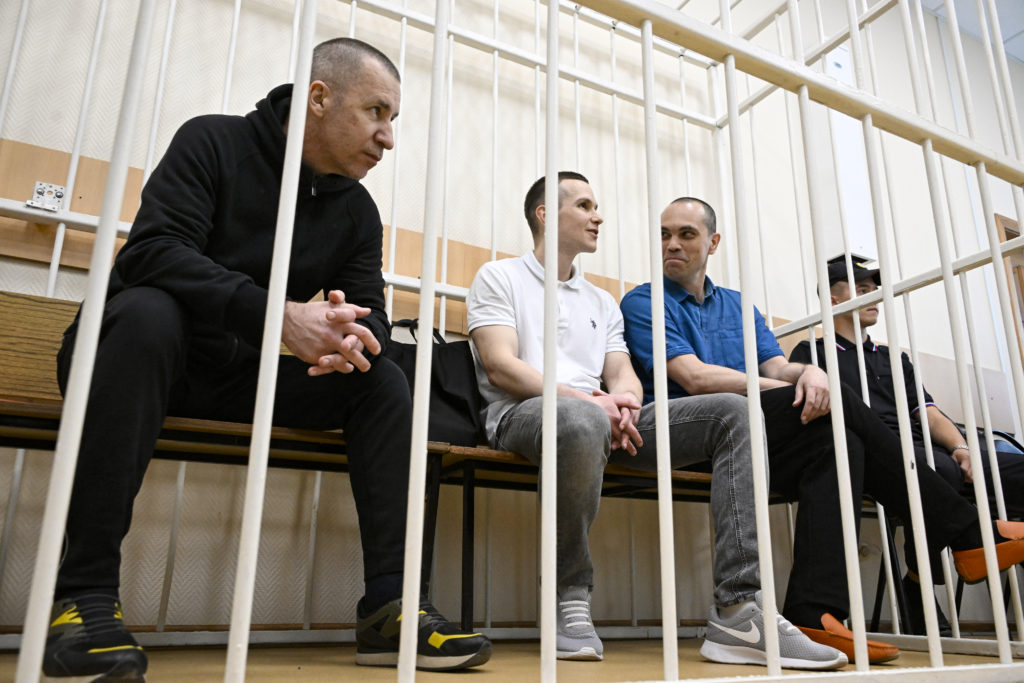Olaf Scholz, who is on the brink of succeeding Angela Merkel after 16 years as German chancellor, has assembled a team of strange bedfellows to share power at the helm of his centre-left government.
The coalition of Scholz’s Social Democrats with the ecologist Greens and the pro-business Free Democrats (FDP) will place often ideologically opposed leaders of the smaller parties in pivotal jobs.
Here’s a look who the top ministers are likely to be and what can be expected of them.
– Car-lover steering economy –
FDP leader Christian Lindner looks set to claim the coveted finance portfolio in the incoming government.
Lindner is known for sharp suits and a firm grip on the wheel of his party, which he has steered back into power after eight years in the wilderness.
The fast-talking 42-year-old would be handed the keys to the job he has been gunning for for years at a crucial moment for the German economy.
The vintage car lover, who used to list his interests outside politics on his website as “anything that can be filled with petrol”, would have to oversee a massive green investment programme agreed by the new coalition.
Lindner’s enthusiasm for strict fiscal discipline and his desire to see business, not government, take the lead on renewable energy do not make him a natural ally for the Social Democrats (SPD) and the Greens.
Against the backdrop of surging inflation, his party’s tight embrace of balanced budgets could put Lindner, recently engaged to be married, on a collision course with the more left-leaning members of the government.
– ‘Super’ minister for climate –
Robert Habeck, who is expected to lead a new super-ministry for climate in the incoming government, is the urbane Greens co-leader who helped turn the party into a major electoral force.
The 52-year-old philosopher who has published several novels co-authored with his wife has harnessed his soft-spoken charm as a powerful draw for the ecologist outfit.
Habeck was long seen as a possible finance minister but he appeared to have lost a tug-of-war to Lindner.
Now nearly two months of wrangling has seen Habeck likely to clinch an attractive consolation prize — a new power centre combining authority for the economy, climate protection and energy policy.
“We are talking here about a moment to change the course of history,” Habeck insisted on the campaign train in the run-up to September’s general election in which the Greens placed third.
He made headlines in April when, as the higher-profile member of the Greens’ leadership duo, he stepped aside in favour of his younger female partner in power, Annalena Baerbock, as the party’s first candidate for chancellor.
When her bid for the top job ran into trouble over a plagiarism scandal and dubious bonus payments, Habeck put on a show of loyalty even as pundits asked whether he wouldn’t have been the better standard-bearer.
But the father of four let his ambition shine through during the post-election haggling, grabbing the Greens’ most high-profile ministry in the cabinet.
– First woman top diplomat –
As a former medal-winning trampolinist, Annalena Baerbock is used to aiming high.
Although the 40-year-old failed in her bid to snatch Merkel’s crown and become Germany’s first Green chancellor, the expert in international law is poised to become the country’s first woman foreign minister.
She has pledged to put human rights at the centre of German diplomacy, promising a tougher ride for Russia and China after the commerce-driven pragmatism of the Merkel years.
Almost from the start of her rocky campaign for the election, Baerbock disappointed lofty expectations with a series of missteps.
But polished television debate performances followed by a record score of 15 percent for the Greens on polling day left Baerbock well-placed to stake a claim to a high-profile post.
The mother-of-two and trained lawyer is described as quick on her feet and determined, with a meticulous attention to policy details.
“She keeps asking questions until she has really understood an issue,” a party source told the Handelsblatt daily. “She won’t be fobbed off.”
Raised on a farm near Hanover, Baerbock had an early taste of politics when her parents took her to anti-nuclear demonstrations in the 1980s, a movement that spurred the creation of the Green party.
As a teenager Baerbock took part in trampoline competitions, winning three bronze medals in German championships. The sport taught her to “be brave”, she has said.











